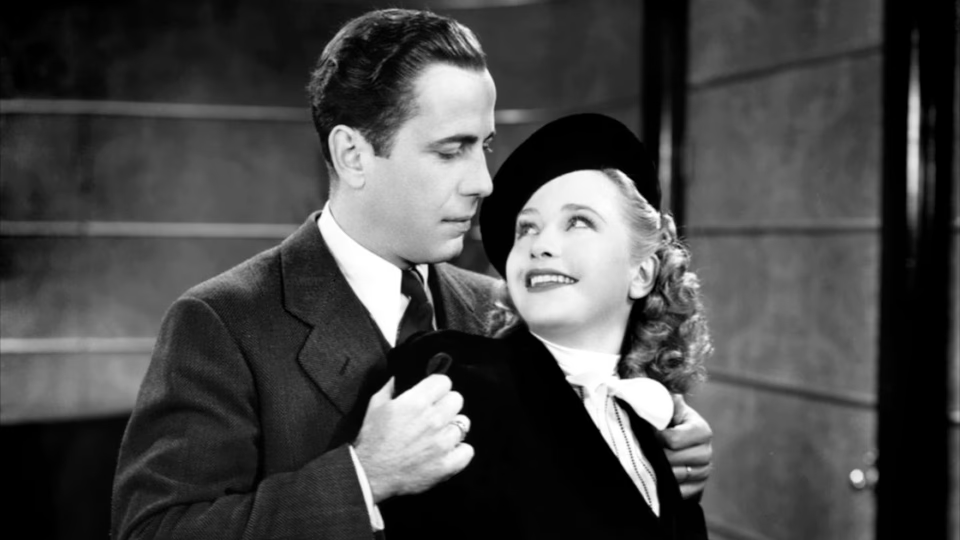Men Are Such Fools

Sure, seeing Humphrey Bogart shed his terrycloth trench robe to reveal a two-piece bathing suit reminiscent of a strong-man singlet always elicits a chuckle, but I keep forgetting how getting there proves an ordeal.
Priscilla Lane stars as Linda, a secretary in an advertising agency who dreams of climbing the corporate ladder and drawing a salary instead of wages.
Her boyfriend, Jimmy, played by Wayne Morris, is an ex-footballer from Princeton turned ad-man. He barges into her office, answers her phone to say she’s busy, badmouths her boss, and shoos away her friends. Yet she still calls him darling and accepts his order to have lunch with him.
Just as Linda’s career takes off, she marries Jimmy. When Linda works overtime and misses the big Princeton football game, Jimmy demands Linda quit her job. Linda agrees, and several months later they’ve settled into a routine suburban existence with Linda playing the role of dutiful housewife.
Still ambitious, Linda arranges a promising business venture for Jimmy, but Jimmy, content, declines. Furious, Linda leaves Jimmy and resumes her career. Soon, she’s near the top of the ladder, working long nights alongside fellow advertising executive Harry, played by Bogart.
Despondent, Jimmy throws himself into his work and achieves a large measure of success. As Harry makes his feelings for Linda clear, Linda realizes she’ll have to choose between Harry and Jimmy. She chooses poorly.
Romantic comedies require us to like at least one lead. Here, I loathed them both.
Jimmy displays no regard for Linda’s dreams and ambitions, behaving as though he’s entitled to her attention and affection. When Linda cancels a dinner date with Jimmy to sell her boss on an ad campaign, Jimmy crashes the meeting. When a senior executive talks to Linda at a party, Jimmy sulks in a corner rather than join the conversation. And don’t forget Linda’s near-unforgivable crime of missing the Princeton game with Jimmy and his fraternity buddies.
Jimmy’s so chauvinistic it’s almost comical. But everyone in the film acts as though his behavior is acceptable. They laugh and chalk it up to young love. That’s when you realize it’s not Jimmy who’s supposed to be funny, but Linda for prioritizing her career over a man.
Which brings us to Linda, who I loathed even more than Jimmy. She doesn’t just endure his behavior; she encourages it. Consider how Jimmy gets her to marry him. They’re at a pool party thrown by one of Linda’s bosses. Linda’s talking to a high-level executive. Furious that Linda would dare talk to another man, Jimmy stalks across the party, grabs Linda, pulls her into the pool and demands she marry him. When Linda says no, he pushes her head under water. He waits a beat, then lets her up. As Linda gasps for air, Jimmy repeats his demand. Again she says no. Back under she goes. This repeats—in full view of the guests, most of whom are Linda’s superiors at work—until Linda agrees with a doe-eyed smile full of adoration. Now, I ask you, who’s worse: the ass or the woman who reinforces the behavior?
I intended to close with something about the ambiguous ending, but why bother. The only way to enjoy this affront to gender equality is to start the movie, fast-forward to Bogart’s introduction, laugh at his outfit, then turn off the movie. Don’t say I didn’t warn you.